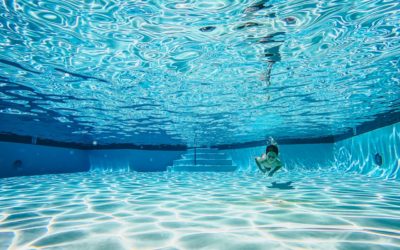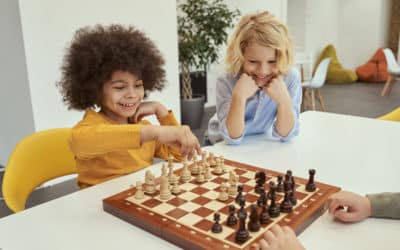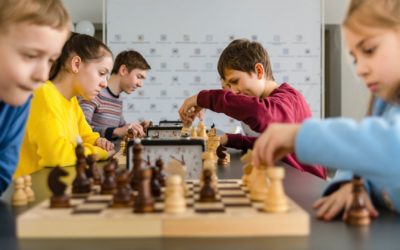As soon as the schools reopen, the summer vacations begin. What about the alarmist opinions of some education specialists? Will the vacations continue to deepen the teaching deficit of recent months? No need to panic! The vacations are here and that's good news for children. In the balance of pros and cons, vacations win hands down.
What solutions can be found to overcome the shortcomings of the last few months?
The "learning vacations" of the National Education
Like every year, the schools offer support courses in July and August in the student's school or at least in a school close to the area. This year, this program is intended to be reinforced to help students in need. It should concern one million students during the summer. The principle adopted will be "entirely free for the most modest families, whose children will be given priority", said Jean-Michel Blanquer, the Minister of National Education. Free education was already the norm in previous years. But the novelty lies in the plurality of possible variations, i.e. outside of the courses themselves.
Thus, the Secretary of State for Youth, Gabriel Attal, announced that the State would finance "250,000 departures to learning vacation camps, including 200,000 reserved for young people from priority urban districts" (sourceExpress). In addition, day-care centers should be mobilized to reinforce learning. In total, 400,000 young people under the age of 17 could benefit from tutoring.
However, the modalities of this political ambition remain to be defined locally. Moreover, it assumes the mobilization of 25,000 teachers according to Mr. Blanquer. The use of associations will undoubtedly provide supervisory staff. But it is not certain that the 2,500 schools concerned will be sufficiently staffed. We will have to wait until the end of the summer to draw up an assessment: attendance rate, attendance, programs and activities actually implemented...
Are notebooks and vacation homework desirable?
Moreover, how can learning be supported outside of these arrangements? For all students, whether they are dropouts or not, the summer vacations lead to a drop in knowledge. This year, the fear is all the stronger because the previous months were not able to ensure the totality of the programs. If there was indeed pedagogical continuity for a majority of students, the new notions were postponed to the next school year. Therefore, it would be tempting to make up for this delay with vacation assignments. But this idea could be detrimental to students. For several reasons:
- vacation notebooks or homework can only be revisions,
- parent-supervised work is still correlated with confinement and therefore has a negative aspect,
- the students came out of the lockdown exhausted and unmotivated, yet another written assignment will not solve this problem.
In fact, we are faced with a dilemma. On the one hand, the need to help and accompany our children so that they progress to the best of their abilities. On the other hand, the need to let go and to reconnect with the notion of pleasure. How to reconcile good mood and learning? The only certainty, which Jean-Michel Blanquer defends, is that the chances of success increase when learning is fun.
Fun and educational vacations
During the lockdown, the supply of educational games and activities exploded. These contents are still accessible and valid during the vacations. Between sports sessions, DIY (homemade) and smart apps, you are bound to find an activity to your liking. Moreover, with the reopening of public places, museums, cinemas, workshops for children, the vacations are going to be rich in proposals. Moreover, all these learning situations bring as much new content as psycho-social skills. The skills of knowing how to be and how to live together may have been lacking in recent months and have led to fears of de-socialization. Fortunately, they have been reactivated recently and naturally lead to a resumption of social relations during the summer.
Moreover, learning is not limited to school. The fields of knowledge are infinite and the means of apprehending them very varied. Let's ask our children directly! What would you like to learn? Cooking, skating, coding, swimming, playing the ukulele? The diversity of answers is surprising and delightful! The engine of learning is precisely in this enthusiasm, in this thirst for learning, whatever the object of knowledge. This is why schools often work with projects, to make what is learned more concrete, to involve and motivate the students. Unfortunately, this year, how many school trips and end-of-year shows have been postponed?
How about a rewarding vacation?
Restore confidence
Teachers are already scheduled to assess their students at the beginning of the school year to determine their gaps. Most teachers are already used to doing this at the beginning of each school year. This allows them to adapt to the needs of their students and to plan learning progressions. So there is no need to worry too much about unacquired knowledge and skills at the end of the year. It is part of the teacher's job to take ownership of this issue.
Although some experts have recently expressed concern about the learning deficit, they were targeting an audience of teenage dropouts rather than elementary or early college students. Of course, young people who were already struggling prior to the lockdown likely lost a lot in the interruption and will face repercussions in the near future.
In addition, students in vocational programs have not been able to complete their internships, which puts them at a severe disadvantage compared to students in general programs. However, it would be absurd to condemn to failure young people who have not yet had time to react or make decisions. They have been weakened, but the most important thing for them is to regain their confidence and motivation to act and take charge of their lives.
... and maintain a stimulation to learning
But for the vast majority of the 12 million students in France, educational continuity has kept the flame of learning alive. The psychiatrist Mario Sperenza interviewed by France Info on 3/06/20 tries to reassure parents. According to him, "a two-month period does not change the learning dynamic if there has been some stimulation."
Finally, the accumulation of knowledge is less important than the posture of a learner. As long as the child is part of a developmental dynamic and remains connected to learning, he or she should be able to get back to work without difficulty in September.
Take the pressure off during the vacations
Indeed, for the time being, it seems essential to recreate a more serene climate. Both parents and children need a break from the daily grind of school. In recent months, parents have taken up the challenge of homeschooling. In addition, they have often had to deal with frustration, failure and guilt. It's time for everyone to get back to parenting and take the pressure off. Pressure due to school work, but also due to living together, lack of privacy in sometimes small spaces. Especially in big cities, the lack of access to the outside world has reinforced the feeling of being locked up.
In addition, the lack of contact with other children of the same age, with friends and classmates, took its toll on the children's morale. For many, the net deprivation of any contact for such a long period of time led to disturbances. As Mario Sperenza points out, some of the children experienced sleep disturbances, anxiety, and eating disorders. Thus, the lifting of the confinement contributed to the improvement of the mental health of the children. In this logic, the vacations are part of the same need to move on, to escape from the ordinary and the memories of the last months.
As a result, the outdoors, the beach, the forest or the countryside become privileged places of resilience for all families. So, it's time to wish you all a great vacation!


